Search
Summary 
Loading AI-generated summary based on World History Encyclopedia articles ...
Search Results

Definition
Roman Sculpture
Roman sculpture blended the idealised perfection of Classical Greek sculpture with a greater aspiration for realism. It also absorbed artistic preferences and styles from the East to create images in stone and bronze which rank among the...

Definition
Ancient Greek Sculpture
The sculpture of ancient Greece from 800 to 300 BCE took inspiration from Egyptian and Near Eastern monumental art, and evolved into a uniquely Greek vision of the art form. Greek artists captured the human form in a way never before seen...
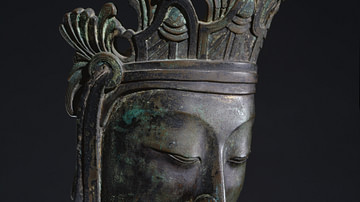
Definition
Ancient Korean Sculpture
The sculpture of ancient Korea was dominated by Buddhist themes such as figurines and monumental statues of the Buddha and his followers, and large bronze bells for temples. Gilded-bronze was the most common material used by Korean sculptors...
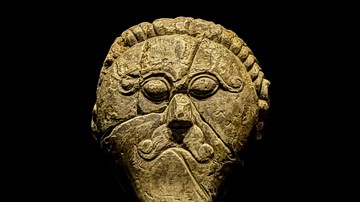
Definition
Ancient Celtic Sculpture
The sculpture of the ancient Celts between 700 BCE and 400 CE is nothing if not varied as artists across Europe developed their own ideas and borrowed what interested them from neighbouring cultures. Early Celtic stone and wood sculptures...
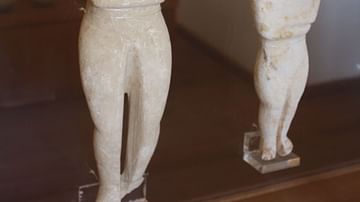
Article
Cycladic Sculpture
The Cycladic islands of the Aegean were first inhabited by voyagers from Asia Minor around 3000 BCE and a certain prosperity was achieved thanks to the wealth of natural resources on the islands such as gold, silver, copper, obsidian and...

Article
Etruscan Bronze Sculpture
The Etruscans produced bronze goods going back to the Villanovan period (1100-750 BCE) and used the material for all manner of objects, but it is their figure sculptures which have become some of the star attractions in museums worldwide...

Image
Sculpture of Richard II of England
A sculpture of Richard II of England (r, 1377 - 1399 CE). Made in 1873 CE by Elkington & Co, cast by Domenico Brucciani. After a contemporary sculpture by Nicholas Broker and Godfrey Prest, made 1395-1397 CE. 787 mm (31 in) tall...
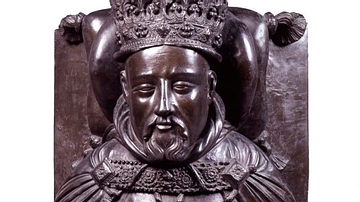
Image
Sculpture of Henry IV of England
Sculpture of Henry IV of England (r. 1399-1413 CE) by by Elkington & Co, cast by Domenico Brucciani. Made in 1875 CE after an original sculpture made c. 1408-1427 CE. 1092 mm (43 in).
(National Portrait Gallery)
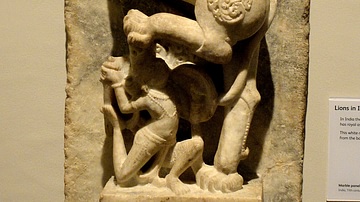
Image
Sculpture of an Indian Lion
In India, the lion is known as the Lord of Beasts and has royal associations. This marble white panel is an architectural figure from the base of an Indian temple. From India, 11th century CE. (National Museum of Scotland, Edinburgh, UK)
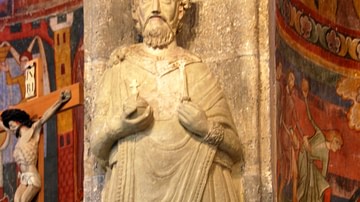
Image
Sculpture of Charlemagne - Abbey of Saint John at Müstair
Sculpture of Charlemagne (Holy Roman Emperor r. 800-814 CE) in the Abbey of Saint John at Müstair, Switzerland. The Abbey, which began life as a monastery, is located in Switzerland's Graubünden Canton and was constructed in the late 8th...